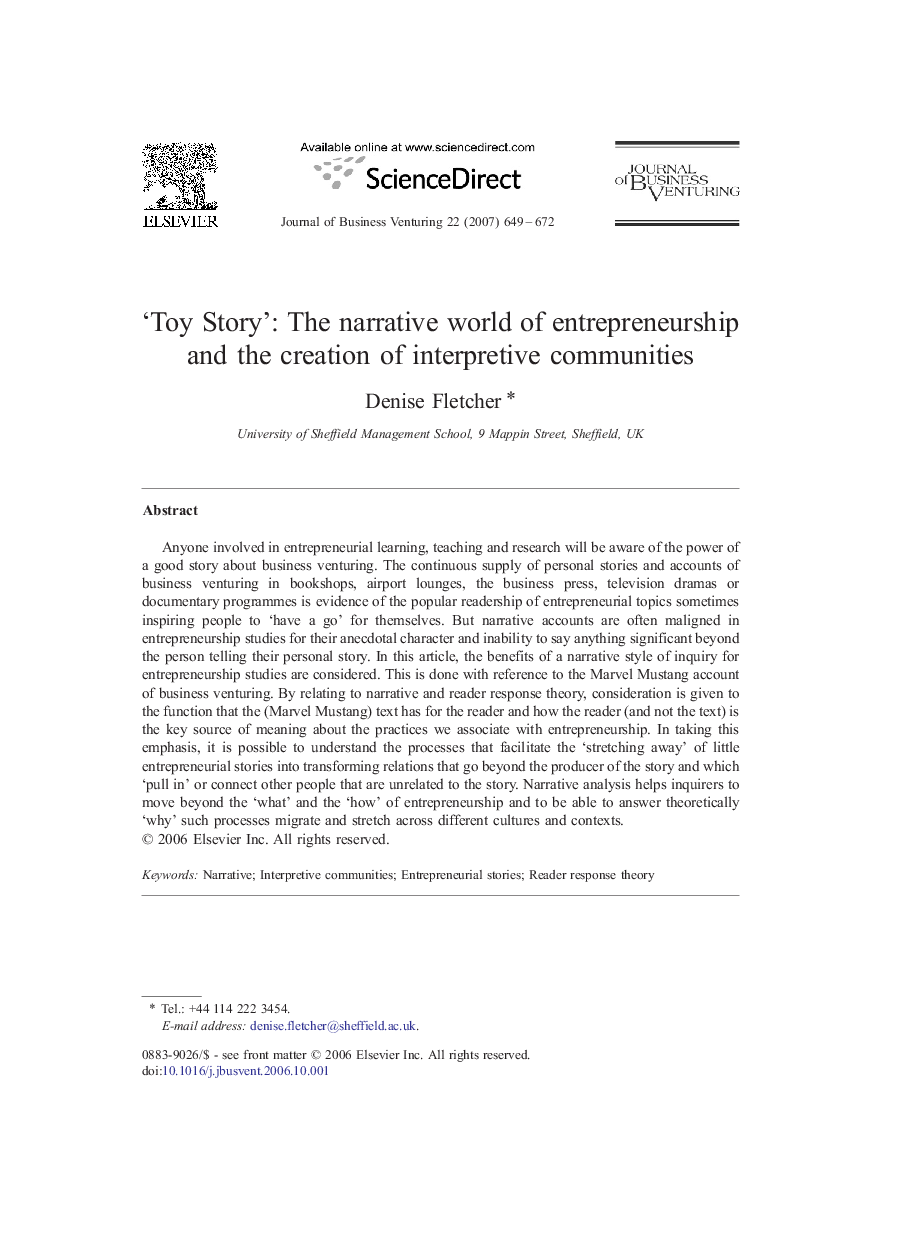| Article ID | Journal | Published Year | Pages | File Type |
|---|---|---|---|---|
| 1019642 | Journal of Business Venturing | 2007 | 24 Pages |
Anyone involved in entrepreneurial learning, teaching and research will be aware of the power of a good story about business venturing. The continuous supply of personal stories and accounts of business venturing in bookshops, airport lounges, the business press, television dramas or documentary programmes is evidence of the popular readership of entrepreneurial topics sometimes inspiring people to ‘have a go’ for themselves. But narrative accounts are often maligned in entrepreneurship studies for their anecdotal character and inability to say anything significant beyond the person telling their personal story. In this article, the benefits of a narrative style of inquiry for entrepreneurship studies are considered. This is done with reference to the Marvel Mustang account of business venturing. By relating to narrative and reader response theory, consideration is given to the function that the (Marvel Mustang) text has for the reader and how the reader (and not the text) is the key source of meaning about the practices we associate with entrepreneurship. In taking this emphasis, it is possible to understand the processes that facilitate the ‘stretching away’ of little entrepreneurial stories into transforming relations that go beyond the producer of the story and which ‘pull in’ or connect other people that are unrelated to the story. Narrative analysis helps inquirers to move beyond the ‘what’ and the ‘how’ of entrepreneurship and to be able to answer theoretically ‘why’ such processes migrate and stretch across different cultures and contexts.
